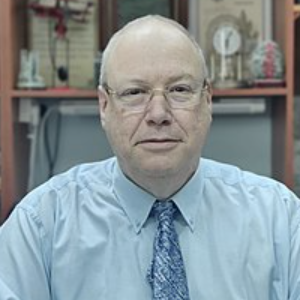Title : Revolutionizing bone grafting: A viable tissue engineered Bone graft set to replace bone autografting for treating critical-sized bone defects
Abstract:
Every year, millions of bone grafts fail to reconstruct large bone deficiencies or otherwise due to insufficient blood supply, infections, or mechanical instabilities. In addition to allografts and bone substitutes, bone autografts are applied in nearly one-third of all limb bone grafting procedures, often leading to considerable donor-site morbidities and other complications resulting in limited success. Bone tissue engineering has been widely investigated in response to the limitations of bone grafts, albeit limited, in clinical trials, for treating minor bone defects.
To address larger and more complex bone defects, Bonus Biogroup has developed BonoFill, an injectable, autologous bone graft that employs a bone-like mineral scaffold to deliver a 3-dimensional culture of regenerative cells that support bone regeneration, vascularization, and graft integration. These cells are derived from mesenchymal stromal and other cells obtained from the patient's adipose tissue. The cells are grown on the scaffold and professionalized to achieve various levels of osteogenic commitment, allowing them to retain a broad range of therapeutic capabilities.
A Phase II multicenter study, led by Prof. Nimrod Rozen, is currently underway to evaluate the efficacy and safety of BonoFill for treating critical-sized bone defects in the limbs that cannot self-heal and failed other treatment options. BonoFill is being tested in this trial on defects up to 7.5cm long in both long and short bones, including extra-articular comminuted fractures, extra- and intra-articular defects/gaps, and nonunion fractures that have failed standard surgical treatments. After successful preclinical and earlier clinical studies, the current trial is evaluating BonoFill's ability to achieve a strong bridge across the bone gap and the patient's ability to bear weight, in addition to safety endpoints, during a one-year follow-up period.
Patients who had been suffering from years of disabilities and had exhausted all other treatment options have already shown remarkable recovery after receiving BonoFill, providing strong evidence of its safety and efficacy. Case studies will be presented showcasing such patients who had previously undergone up to three failed surgical interventions, including those with critical-sized defects in the tibia exceeding 5cm, nonunion fractures of the radius and ulna, and massive bone loss of more than 40cc due to bone resection for valgus knee correction. After receiving BonoFill treatment, these patients reported complete recovery and a return to normal function.
An additional Phase II clinical trial, led by Dr. Ephraim Tzur, is currently underway to test BonoFill for treating maxillofacial bone deficiencies. Enrollment for this study is almost complete. So far, twenty-five bone deficiencies have been treated and analyzed, demonstrating a perfect safety profile and significant bone regeneration allowing subsequent reconstructive procedures six months from the transplant in about 90% of the patients.
In summary, BonoFill is a groundbreaking development in bone tissue engineering, offering a promising solution for critical-sized bone defects in limbs and maxillofacial bone deficiencies and presenting a viable alternative to bone autografting. In this presentation, we will explore the science and technology behind BonoFill and its clinical application, as well as share compelling results demonstrating BonoFill’s safety and efficacy.




